Two Mumbai Doctors Help 1300 Underprivileged Kids Hear Again, For Free
Renowned ENT surgeon Dr Jayant Gandhi and Dr Devangi Dalal have helped underprivileged children between the ages of 1 and 20 gain access to high-quality digital hearing aids, training and support, all free of cost.
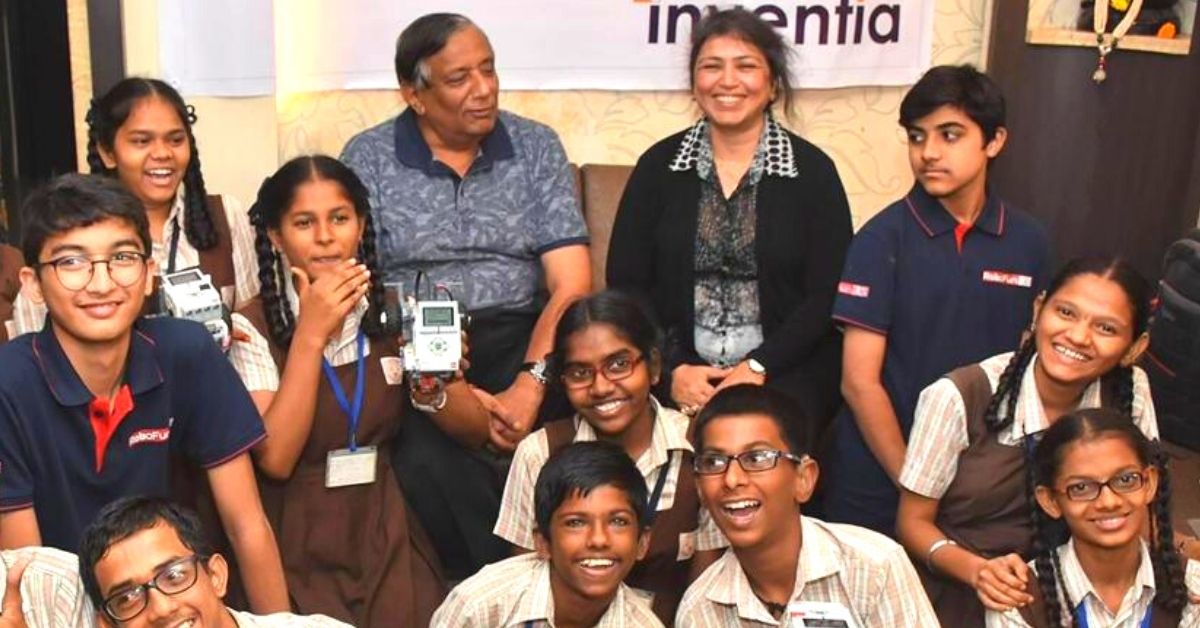
By 2050, 2.5 billion people worldwide ─ or 1 in 4 people ─ will have some degree of hearing loss, as per a recent World Health Organization’s (WHO) report. Of them, nearly 700 million will need rehabilitation services and hearing care unless there is timely intervention. Closer home, 63 million people are suffering from significant auditory loss in India, according to another WHO report.
The report says that untreated hearing loss will severely affect both a person’s ability to communicate, as well as their mental health. It recommends integrating hearing care under universal health coverage and introducing technology-based solutions. “Hearing technology, such as hearing aids and cochlear implants, when accompanied by appropriate support services and rehabilitative therapy, are effective and cost-effective, and can benefit children and adults alike,” reads the report.
While this report only came out in 2020, two Mumbai-based doctors have been using technological advances and easy-to-use tools for the last 16-odd years to screen patients of hearing loss at an early age and provide solutions. Renowned ENT Surgeon Dr Jayant Gandhi and Dr Devangi Dalal, an audiologist and speech therapist, co-founded Juvenile Organisation for Speech and Hearing (JOSH) foundation in 2004 to aid children from underprivileged backgrounds. The organisation uses high-quality digital hearing aids, training and support that helps hearing-impaired children between the ages of 1 and 20 hear again.
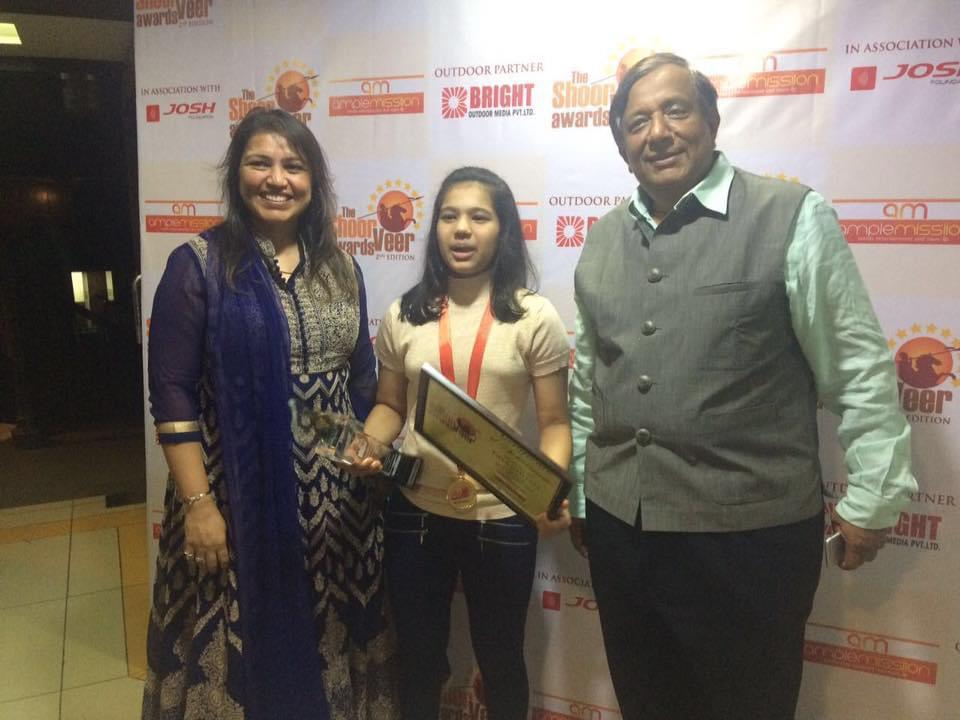
“Hearing assistive technology and services such as hearing aids can improve access to communication and education for those with hearing loss. Unfortunately, the solutions are not equitably accessible to all, due to the high costs. This is where we step in. With help from our donors, we purchase aids. We also provide personality development and career guidance to help children with hearing disabilities come at par with mainstream education,” Dr Devangi, who is the first Indian audiologist to win the ‘Humanitarian Award’ by the American Academy of Audiology in 2012, USA, tells The Better India.
The duo, with more than three decades of experience, has helped over 1,300 children across India hear again, for free. Solutions including speech therapy and counselling have helped many build a mainstream career. They have gone on to become architects, civil engineers, photographers, and more.
Identification to rehabilitation
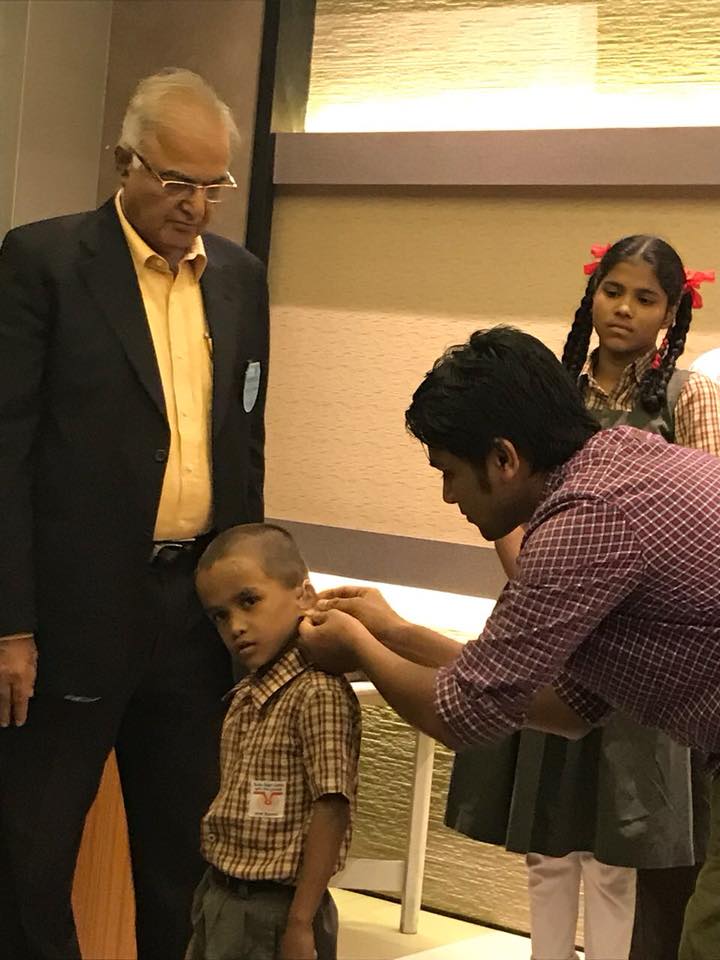
JOSH aids 12 schools for children with special needs, as well as mainstream schools and individuals who come for help. If the family’s income is below Rs 10,000, the foundation initiates an application for free aid.
Dr Devangi then screens the child and prepares a report to determine the percentage of hearing loss, and child’s listening and speech level. Based on the report, the child gets a hearing aid tailored to his/her needs. Dr Devangi personally ensures the fitting process of every child and follows up for the next six months. The aids priced at an average of Rs 60,000 come with a shelf-life of 5-6 years, thus proving to be more viable and economical than a transplant that costs lakhs.
Although digital hearing aids are expensive, they are also more advanced than analogue programmable aids. They can convert sound waves into digital signals and produce an exact duplication of sound. The chips inside the aid can analyse speech, environmental sounds and can process complex sound during the amplification process. The sound transmitted by the hearing aid can be matched to the person’s hearing pattern.
To help children integrate into mainstream schools, or vocations in case of older children, the foundation organises weekly training in the schools they have collaborated with.
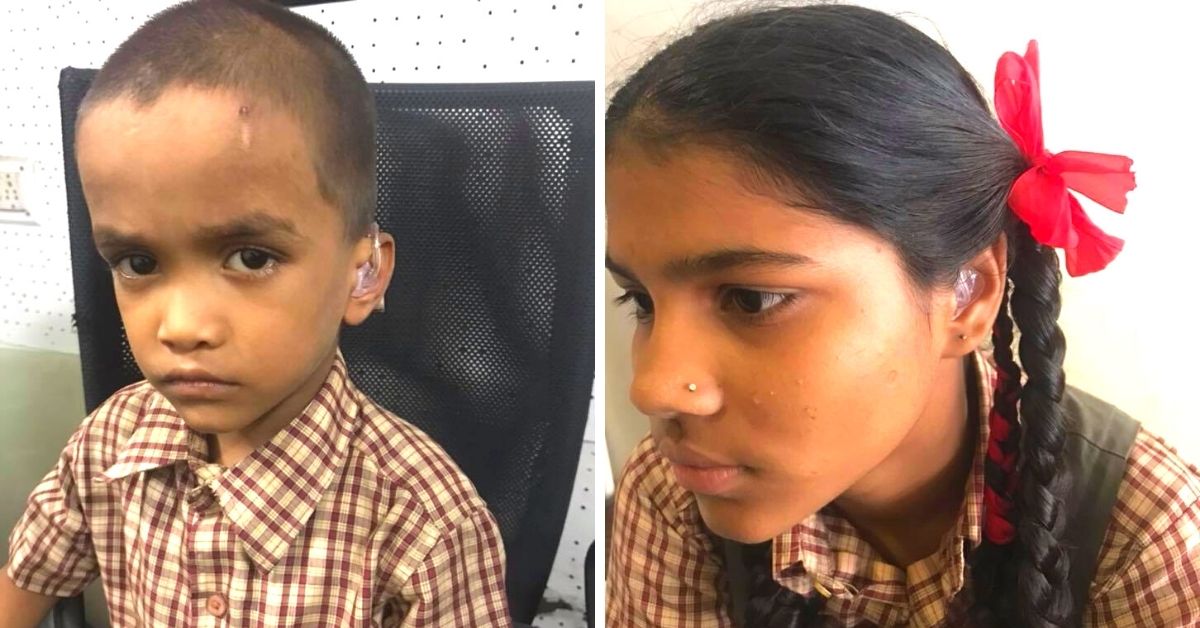
“We support children till they become self-dependent. Around 25% of our kids were able to get admission in mainstream schools after getting the hearing aid. Meanwhile, four of our students attained a black belt in martial arts and have gone on to become instructors. Their confidence has increased, their speech has improved and most importantly, they no longer feel that a hearing impairment is an obstacle to their growth,” says Dr Devangi.
Rashmi (name changed), one of the organisation’s beneficiaries, received a hearing aid 13 years ago, and today, is a topper in her class. Her father, who is a vegetable vendor, never imagined his daughter would ever get a chance to be integrated into society, considering they didn’t have enough money for a transplant. JOSH is also funding Rahmi’s education. Like Rashmi, Sagar (name changed) was also sponsored by the JOSH foundation for hearing aid and education. He completed his diploma in electronics and now works in the field of computers.
Why hearing impairment is not a ‘seen’ disability
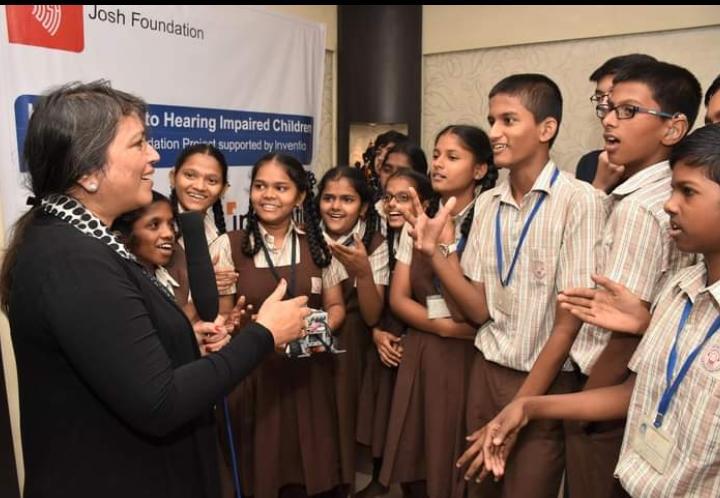
When Dr Devangi and Dr Gandhi decided to establish JOSH, the sole aim was to create enough awareness and debunk the stigmatising attitudes towards hearing disability. During one of their international conferences, the duo realised hearing loss was not given enough attention in India.
“Other disabilities can be spotted, but it is hard to spot a person who cannot hear properly. Lack of information vis-a-vis relevant indicators, early identification and prevention is a major challenge. Another glaring issue is the shortage of ear, nose and throat (ENT) specialists. Such challenges can be solved by including ear and hearing care into primary health care,” underlines Dr Devangi. She has been actively educating people about this issue through various mediums. She has authored books in Hindi and Gujarati and directed a 17-minute telefilm. She has also written more than 500 articles for newspapers and health magazines.
She says collective ignorance had a direct impact on their initiative in the initial period, “Funding was a daunting task as donors were not convinced about spending high amounts on a digital hearing aid when they could sponsor more number of kids for cheaper hearing aids. They would give examples of NGOs who had benefited more kids in lesser money but we stuck to our ethics. We wanted quality care and holistic development for every child, even if it meant impacting fewer lives,” she says.
Fortunately, over the years, the organisation has successfully created a pool of trustful donors who understand the ideology behind the initiative.
Get in touch with JOSH foundation here.
Edited by Divya Sethu
If you found our stories insightful, informative, or even just enjoyable, we invite you to consider making a voluntary payment to support the work we do at The Better India. Your contribution helps us continue producing quality content that educates, inspires, and drives positive change.
Choose one of the payment options below for your contribution-
By paying for the stories you value, you directly contribute to sustaining our efforts focused on making a difference in the world. Together, let’s ensure that impactful stories continue to be told and shared, enriching lives and communities alike.
Thank you for your support. Here are some frequently asked questions you might find helpful to know why you are contributing?


This story made me
-
97
-
121
-
89
-
167













